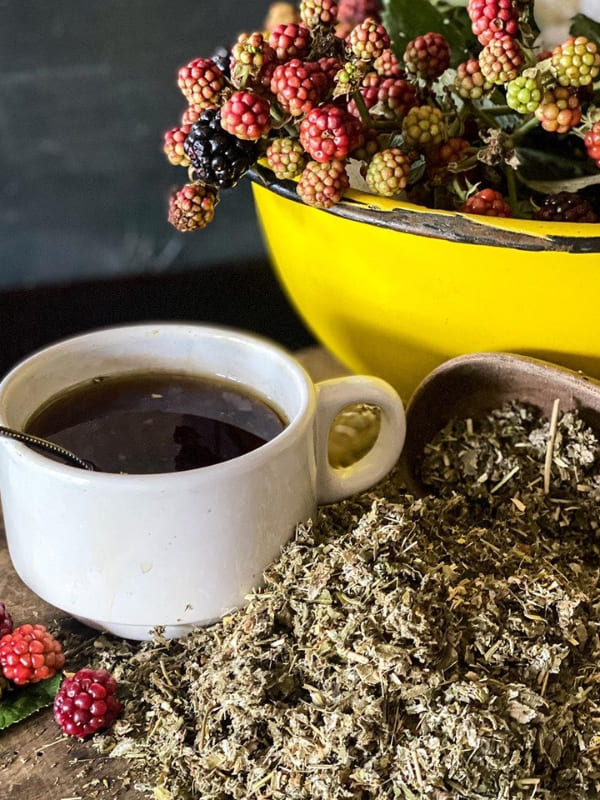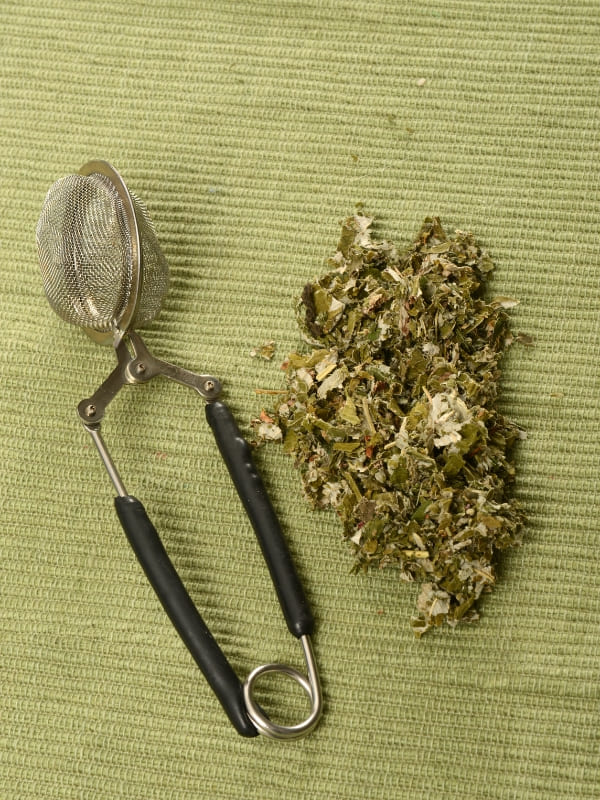Red raspberry leaf tea, derived from the leaves of the red raspberry plant (Rubus idaeus), is a time-honored herbal remedy often recommended for pregnancy.
Its use dates back centuries as a natural uterine tonic, offering a wealth of nutrients like calcium, magnesium, and iron to support maternal health.
Many midwives and herbalists praise this tea for its ability to ease labor, support recovery, and promote overall wellness for both mother and baby.
If you’re looking for a natural way to enhance your pregnancy journey, red raspberry leaf tea may be just the solution. Let’s explore its benefits, how to use it effectively, and the best way to brew it.
#1. Strengthens the Uterus
Red raspberry leaf contains an alkaloid called fragrine, which tones and strengthens the uterine muscles. This improves the efficiency of contractions during labor, potentially reducing its intensity and duration.
A study published in the Journal of Midwifery & Women’s Health found that women who consumed red raspberry leaf tea regularly had a 35% reduction in the need for interventions like cesarean sections and forceps delivery.

#2. May Shorten Labor Duration
Regular consumption of red raspberry tea during pregnancy has been linked to shorter second stages of labor. Its ability to support organized uterine contractions contributes to smoother deliveries.
A study of 108 pregnant women concluded that those drinking red raspberry tea experienced significantly shorter labor times compared to those who didn’t.
#3. Eases Morning Sickness
This tea is known to reduce nausea, especially in early pregnancy. However, its use in the first trimester remains debated due to concerns about uterine stimulation.
If approved by your healthcare provider, drink red raspberry tea with a slice of fresh ginger to enhance its anti-nausea properties.

#4. Supports Postpartum Recovery
Red raspberry tea is believed to aid postpartum recovery by helping the uterus contract back to its pre-pregnancy size. It may also minimize postpartum bleeding due to its astringent properties.
A study in Phytotherapy Research highlights the plant’s role in promoting uterine health and recovery after childbirth.
#5. Provides Essential Minerals
Red raspberry leaf is a natural source of calcium, magnesium, and iron, which are vital for a healthy pregnancy. For example, magnesium supports muscle relaxation and reduces leg cramps, while iron helps prevent anemia.
One cup of red raspberry tea contains approximately 13 milligrams of calcium and small amounts of iron, contributing to daily mineral requirements.

#6. May Enhance Breastfeeding
Some herbalists consider red raspberry leaf a galactagogue, helping improve breast milk quality.
While overconsumption might reduce milk supply due to its astringency, moderate use supports postpartum recovery and nutrient transfer.
How to Brew Red Raspberry Leaf Tea
Ingredients
- 1 tablespoon of loose red raspberry leaf tea (or a pre-blended tea mix).
- 1 cup boiling water.
- Optional: Fresh ginger slices, dried chamomile, or honey for added flavor and benefits.
Instructions
First, place the tea leaves in a stainless steel infuser or directly into a teapot. Next, pour boiling water over the tea and cover it to retain heat.
Then, let it steep for 10–15 minutes to ensure full extraction of nutrients. After steeping, strain the tea and sweeten it with honey or maple syrup if desired.
Finally, you can enjoy the tea warm or let it cool for a refreshing iced tea option.

How to Use Red Raspberry Leaf Tea Effectively
1. Trimester Guidelines
Second Trimester: Begin by consuming one cup daily to allow your body to adjust to the tea.
Third Trimester: Subsequently, you can gradually increase your intake to 2–3 cups per day to support uterine preparation for labor.
2. During Labor
During early labor, sip warm tea to stay hydrated and, furthermore, to encourage effective contractions.
3. Postpartum
In the postpartum period, drink one to two cups daily for the first few weeks after delivery to support recovery and, additionally, to aid in milk production.
4. Combined with Other Herbs
For added benefits, such as relaxation, kidney support, or extra minerals, you can mix red raspberry leaf tea with other beneficial herbs like nettle, chamomile, or oat straw.
5. Batch Preparation
To save time, you can brew a larger quantity of tea and store it in the refrigerator for up to three days. Then, reheat it gently or serve it cold as needed.
Practical Tips for Enjoyment
- Enhance flavor with fresh mint or lemon slices.
- Pair with a light snack like nuts or fruit for a calming wellness break.

Cautions and Precautions
While some studies suggest red raspberry leaf tea is safe in all trimesters, others recommend avoiding it in the first trimester due to potential uterine stimulation.
If you experience strong Braxton Hicks contractions after drinking the tea, reduce your intake or discontinue use.
Women with a history of preterm labor or pregnancy complications should avoid red raspberry leaf tea unless explicitly approved by their healthcare provider.
Disclaimer
This article is for informational purposes only and is not a substitute for professional medical advice.
Always consult your healthcare provider before using herbal remedies during pregnancy.

Top 6 Benefits of Red Raspberry Leaf Tea for Pregnancy Every Mom Should Know And How to Use It Safely
